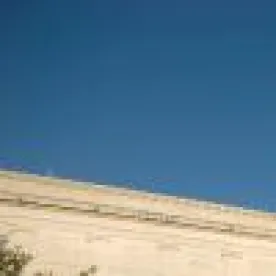On May 6, 2020, the United States Supreme Court held oral argument in William P. Barr, et al. v. American Association of Political Consultants, et al., No. 19-631 (Nov. 14, 2019). In Barr, the Court was asked to consider the constitutionality of the government debt collection exemption to the Telephone Consumer Protection Act (TCPA). Under that exemption, calls placed to collect a debt owed to or guaranteed by the United States government are not subject to the TCPA’s autodialing restrictions. The questions before the Court were (1) is the government debt collection exemption unconstitutional under the First Amendment and (2) if so, whether the constitutionality can be addressed by simply severing that exemption from the statute or whether the entire statute should be invalidated. Based on the tone of the oral argument, the tide may be changing for the TCPA.
The questions posed by the justices during the oral argument suggest that the majority have serious concerns about the constitutionality of the government exception and are likely to strike it down. But, in a surprising turn of events, several questions posed by the justices seemed to suggest that the Supreme Court may be receptive to finding the statute to be unconstitutional in its entirety. One of the first questions was from Chief Justice Roberts in which he asked counsel for Barr (Petitioner) to explain the justification for severance—a remedy normally reserved for illegal provisions. Petitioner argued that the exception was recently added and could be easily severed, but several justices observed that severance in this case (which deals with an exception to the automatic telephone dialing system restriction) would have the unusual result of further restricting speech. Because of this, several justices seemed skeptical that severance is the proper remedy.
The questions posed to counsel for the American Association of Political Consultants, Inc. (Respondent) also focused largely on the severance question. But, when asked directly about the constitutionality of the TCPA as a whole, Respondent convincingly argued that it is not constitutional. Respondent argued that the justification for the TCPA’s restrictions on speech (privacy) is directly contradicted by the government’s debt exemption. For example, Respondent reasoned the volume of debt collection calls to student loan borrowers far exceeds the volume of calls that would be made in connection with a political campaign. Thus, Congress simply decided that the government’s right to collect money was more important than a consumer’s right to privacy. Respondent argued that this is a content-based restriction that cannot survive the strict scrutiny test. There were some questions directed at the popularity of the TCPA as a method for limiting unwanted calls, but Respondent argued that there were other, less restrictive means for accomplishing those goals (e.g., the “Do Not Call” regulations). Further, the questions aimed at Respondent seemed somewhat less hostile than those aimed at Petitioner.
While it is unknown how the Supreme Court will ultimately rule on the constitutionality of the TCPA, based on the questioning during the hearing, there is a real possibility that the Court invalidates the entire statute. The Court’s openness to such a possibility may also explain why the Court has yet to rule on the motion for certiorari in Facebook, Inc. v. Duguid, No. 19-511 (Oct. 21, 2019), regarding the definition of an ATDS, despite the clearly developing circuit split on this issue.
In light of the oral argument in Barr, companies facing TCPA claims should consider whether or how Barr may impact litigation strategy, including whether a motion to stay pending the Barr decision may be warranted.






 />i
/>i

